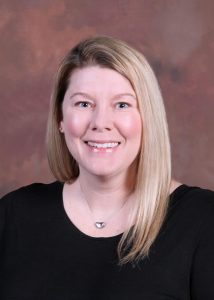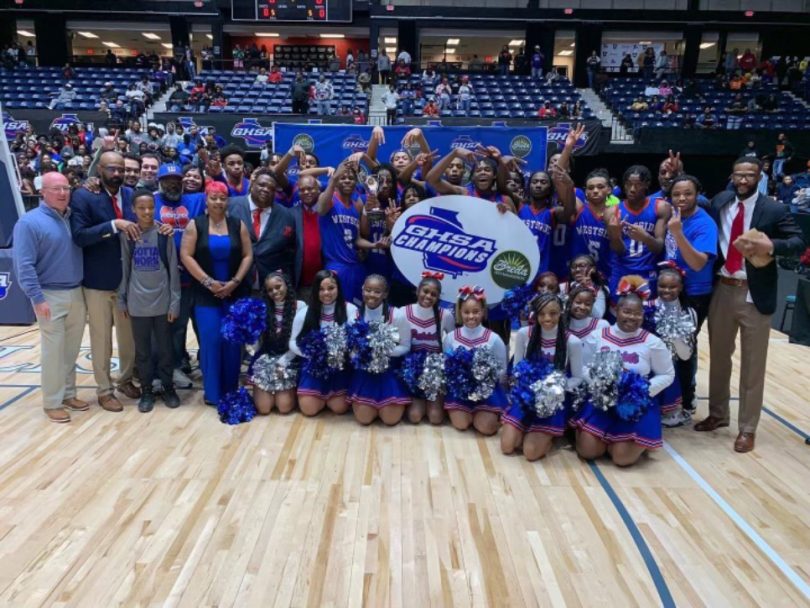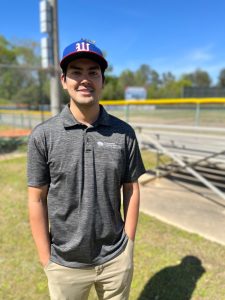It’s a special feat for a high school basketball team to make it to the state championship game. It’s an even bigger accomplishment to win the biggest game of the year on the biggest stage.
Doing it twice in a row? Well, that’s almost unheard of, but don’t tell that to the Westside high school boys’ basketball team, who accomplished that this March.
One person who was there for each championship was Augusta University Health athletic trainer Lucas Hayashi Descio. He’s seen plenty of teams and athletes go through the doors of Westside and said the best part of his job is working with these student athletes each day. It’s even more satisfying when he gets to watch their hard work rewarded.
“I get to see them at their highest. If any of them get hurt, then we get to work with them at their lowest and see the work to get back into the best performance possible,” said Descio.
Descio has worked at Westside since 2017. He said he initially wanted to work with college athletes, but saw the opening for an athletic trainer outreach position open up at AU Health and jumped at the chance.
Each season is different, but Descio said injury luck played a big part in their back-to-back title run. Still, he saw his fair share of bumps and bruises along the way.
“We’ve been pretty fortunate that no major injury has occurred. I’ve only really seen minor ankle sprains or tweaks. We work with them, tape them up, do some rehab and pain management and try and get them through the game,” said Descio.
Injuries are commonplace in sports, and in his six years at Westside he’s seen everything from scratches to ACL tears. The important part is being with the students from the beginning to the end and building up that trust.
“[All the athletic trainers] are pretty well trained and we know a variety of injuries and conditions that may come about,” said Descio. “We have a great relationship with [AU Health] physicians and orthopedic doctors, so we can go back and forth to figure out the best treatment.”
He’s one of 11 athletic trainers who work full-time at schools in the CSRA. These athletic trainers will usually attend the sports with the highest injury risk, those being football, basketball and soccer, but will be there for other sports including volleyball, track and field, wrestling, tennis, and baseball.
It’s one of the many roles athletic trainers have in the area.
AU Health’s sports medicine program includes five clinical athletic trainers. Two of the five work in the Orthopedic on Demand walk-in clinic, one works directly with an Orthopedic surgeon in the operating room as a Surgical First Assist and manages his clinics, while another serves as an administrative support for other Orthopedic surgeons. Another works with the Pediatric Orthopedic surgeons and assists with their patient’s needs.
Three other athletic trainers work with the AU athletics department full-time, and the entire staff helps to assist with the different community events. These include: The Augusta Ballet’s The Nutcracker, the Ironman 70.3 Augusta, The Nike Peach Jam, the semi-pro basketball team the Garden City Magic, as well as the Augusta United football team.
Athletic Trainers even stretch into South Carolina. One athletic trainer works full-time at Fox Creek High School in North Augusta and is a sports medicine teacher and athletic trainer for all of the teams’ practices and events.

Three of Ashle Cooper’s students have advanced to the HOSA International Leadership Conference in Dallas, Texas.
Ashle Cooper is the other athletic trainer and teacher who works at the Aiken County Career and Technology Center. She teaches Sports Medicine curriculum to students across the county. Recently, three of her students won the South Carolina HOSA Future Health Professionals competition. They’ll advance to the HOSA International Leadership Conference in Dallas, Texas, on June 21-24.
“I enjoy being able to expose kids to the profession of athletic training, but really more health care in general,” said Cooper. “Being able to influence the lives of kids and giving them confidence that if this is something they want to do, it’s possible.”
HOSA is a student-led organization for future health professionals. It’s for students enrolled in health science and other sciences programs who are interested in a career in health and biomedical professions.
Cooper said the need for health care professionals is only growing, giving students the background and confidence at the high school level makes them less intimidated in the future.
“I feel like I’ve had a hand in the path of graduation. I have more than 30 former students who are now nurses, several who are nurse practitioners and others have gone into physical therapy, athletic training, pharmacy and dental school,” said Cooper. “Kids don’t realize how multifaceted health care is and all the areas you can work in.”
Whether it’s the connection between students or patients, all of AU Health’s athletic trainer staff work to keep the area’s athletes safe and healthy and to get the best out of their potential.
March is National Athletic Trainers’ Month, which focuses on spreading awareness on the importance of athletic trainers.



